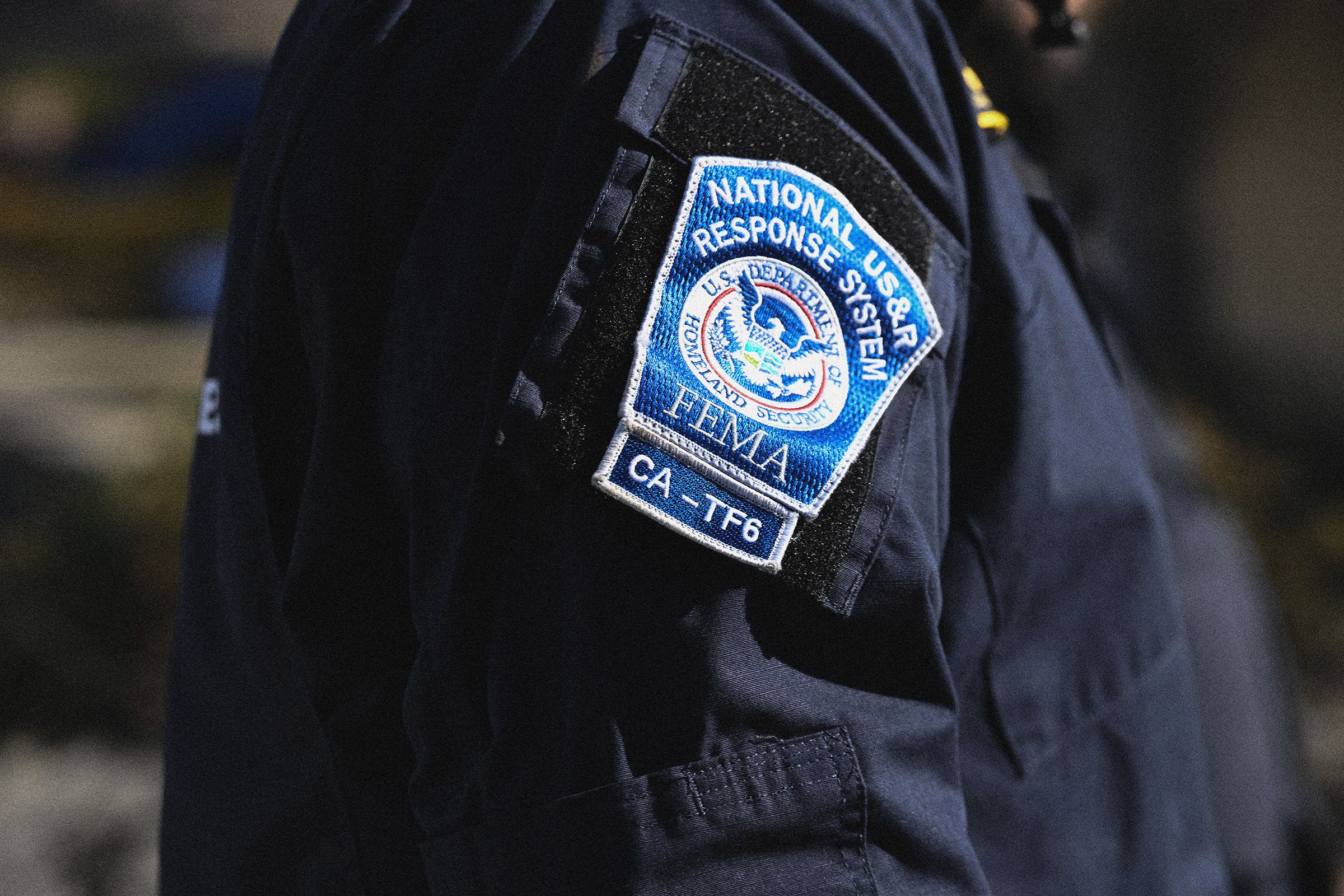The Federal Emergency Management Agency is making significant changes to how it will respond to disasters on the ground this season, including ending federal door-to-door canvassing of survivors in disaster areas, WIRED has learned.
A memo reviewed by WIRED, dated May 2 and addressed to regional FEMA leaders from Cameron Hamilton, a senior official performing the duties of the administrator, instructs program offices to “take steps to implement” five “key reforms” for the upcoming hurricane and wildfire season.
Under the first reform, titled “Prioritize Survivor Assistance at Fixed Facilities,” the memo states that “FEMA will discontinue unaccompanied FEMA door-to-door canvassing to focus survivor outreach and assistance registration capabilities in more targeted venues, improving access to those in need, and increasing collaboration with [state, local, tribal, and territorial] partners and nonprofit service providers.”
FEMA has for years deployed staff to travel door-to-door in disaster areas, interacting directly with survivors in their homes to give an overview of FEMA aid application processes and help them register for federal aid. This group of workers is part of a larger cadre often called FEMA’s “boots on the ground” in disaster areas.
Ending door-to-door canvassing, one FEMA worker says, will “severely hamper our ability to reach vulnerable people.” The assistance provided by workers going door-to-door, they say, “has usually focused on the most impacted and the most vulnerable communities where there may be people who are elderly or with disabilities or lack of transportation and are unable to reach Disaster Recovery Centers.” This person spoke to WIRED on the condition of anonymity as they were not authorized to speak to the press.
“Door-to-door canvassing is another example of a wasteful and ineffective FEMA program,” Geoff Harbaugh, FEMA’s associate administrator for the Office of External Affairs tells WIRED in an email. “Under the leadership of President Trump and Secretary Noem, FEMA is changing how it operates and reforming its policies to better support disaster survivors and the American people. President Trump’s recent executive orders empower states to effectively respond to natural disasters and provide resources at the community level.”
Todd DeVoe, the emergency management coordinator for the city of Inglewood, California, and the second vice president at the International Association of Emergency Managers, says that in his years of working in disaster management he has seen how many survivors don’t get information about recovery or resources without door-to-door outreach—despite emergency managers using strategies like direct mailers and radio and newspaper ads.
“Going door-to-door, especially in critically hit areas, to share information is very important,” he says. “There’s a need for it. Can it be done more efficiently? Probably, but getting rid of it completely is really going to hamper some things.”
FEMA’s door-to-door canvassing became a political flash point last year during Hurricane Milton, when an agency whistleblower alerted the conservative news site The Daily Wire that one official had told workers in Florida to avoid approaching homes with Trump yard signs. Former FEMA administrator Deanne Criswell told the House Committee on Oversight and Accountability during a hearing last year that the incident was isolated to one employee, who had since been fired. The employee, in turn, claimed that she acted on orders from a superior and that the issue was a pattern of “hostile encounters” with survivors who had Trump yard signs.
Republicans on the Oversight Committee alleged that they had received information indicating “widespread discrimination against individuals displaying Trump campaign signs on their property” throughout FEMA. In March, the agency fired three more employees following an internal investigation into the issue.
The Office of Professional Responsibility “investigation found no evidence that this was a systemic problem, nor that it was directed by agency or field leadership,” Hamilton wrote in a letter sent to Oversight chair James Comer.
The canvassing controversy made it into the White House’s 2026 budget, released Friday, which decries “woke FEMA grant programs” and proposes cutting $646 million from “non-disaster” FEMA programs.
“FEMA discriminated against Americans who voted for the President in the wake of recent hurricanes, skipping over their homes when providing aid. This activity will no longer be tolerated,” the budget document states. The White House did not immediately respond to a request for comment.
There is no mention in the FEMA memo of the investigation or recent controversy and no reasoning provided for ending the door-to-door canvassing process. FEMA has deployed door-to-door canvassing in states with federal disaster declarations approved under the Trump administration: An agency press release from March mentions teams going door-to-door in West Virginia following February’s severe storms.
The memo comes at a turbulent time for the agency as it prepares for disaster season. In late April, CNN reported that FEMA stood to lose around 20 percent of its staff in buyouts as part of cuts related to Elon Musk’s so-called Department of Government Efficiency. Last week, Politico reported that the administration had stopped approving allocations for a crucial hazard-mitigation program just a few weeks after news broke that the agency would end one of the federal government’s biggest climate-adaptation programs.
Some of the other reforms in the memo include directives for the agency to “emphasize assistance available from other partners” over federal aid, as well as to emphasize efforts to rely on local- and state-run recovery centers rather than federally-run ones, “reducing the need to establish FEMA Disaster Recovery Centers and optimizing support for state and locally led recovery efforts.” The memo emphasizes that the agency intends to “respect the primacy of states, territories, and Tribal Nations in disaster response.”
“Our role is to support our partners, not replace them,” the memo states. “FEMA does not act alone.”
DeVoe says that like many of the responsibilities being shifted from FEMA to local response, the task of surveying survivors door-to-door will now fall to local and state responders. These groups may be hard-pressed to find the budget and manpower, especially as federal programs and grants keep getting cut.
“California, New York, Massachusetts, Florida, Washington, Oregon, Florida, Texas—they’re going to be OK,” he says. “It’s going to be those smaller states—are they going to be OK?”
Updated: 5/5/2025, 4:13 pm EDT: Updated to include comment from FEMA.




